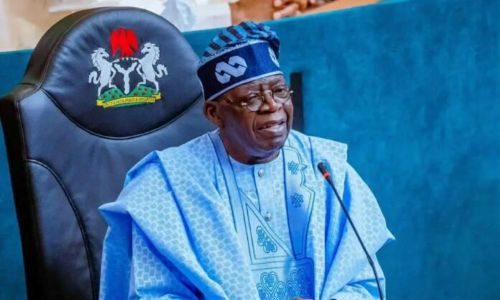Defection has become a norm in Nigeria’s political experience. It is now an acceptable tradition for defections to happen ahead of general elections and even off season contests. High profile politicians have been changing parties ahead of the 2027 general election.
Some prominent members of the All Progressives Congress such as former Governor of Kaduna State, Nasir El-Rufai, have defected to the Social Democratic Party after expressing dissatisfaction with the administration of President Bola Tinubu. No single Nigerian or civil society group condemned the move or alleged that Nigeria was moving to a one party state.
In Enugu State, prominent Labour Party members, including National and State Assembly members, have dumped the party for the PDP. One of them is the Labour Party’s governorship candidate in the 2023 elections, Chijioke Edeoga. He cited the high performance of Governor Peter Mbah for his decision to rejoin the PDP. Many Nigerians hailed these moves as healthy and good for democracy. So, why is defection from the PDP to the APC different?
There have been unfounded allegations against President Bola Tinubu since the Governor of Delta State Sheriff Oborevwori, his Deputy, Monday Onyeme, the immediate past Governor of the State, Dr. Ifeanyi Okowa, all State cabinet members and PDP leaders defected to the APC. There have been allegations that the President is deliberately orchestrating a one party state. But Governor Oborevwori stated clearly that the PDP was drifting and was no longer a viable platform for them. This is what Nigerians should take a critical look at.
Let’s cast our mind back to what transpired when the PDP was in power between 1999 and 2007. There were several defections from other smaller political parties to the ruling party to the extent that fears were expressed about Nigeria becoming a one party state. At a point, the PDP controlled 29 states out of the 36 in Nigeria. The PDP that was a great beneficiary of the defections saw nothing wrong in such political movements. Now that it is at the receiving end, it is condemning defections. Why give what you can’t take?
The likes of former Vice President, Atiku Abubakar, and former President of the Senate, Dr. Abubakar Bukola Saraki, whose movement to the APC led to the defeat of the PDP in the 2015 general election, have even joined in condemning the Delta State political tsunami. When the defunct ANPP went to court to challenge the movement of former governor of Zamfara State, Mahmud Shinkafi to the PDP, the then ruling party hired lawyers to defend the defection. Today, the same party wants to go to the court to challenge the defection of Governor Oborevwori to APC. What a monumental irony!
The problems of the PDP are self – inflicted, and it should blame itself for what is happening to it currently instead of pointing accusing fingers at President Tinubu. It is not the responsibility of the ruling APC or that of the President to reorganise the PDP and fund it adequately to perform its role as an opposition party. Its major problem began when the party decided to field another northerner as its presidential candidate for the 2023 election when former President Muhammadu Buhari was leaving office after eight years in power. This led to a crisis within the party and caused its defeat. When the National Chairman, Dr. Iyorchia Ayu, decided to resign, the party decided to appoint Alhaji Illya Damagum from the North West as acting chairman instead of choosing someone from the North Central, where Ayu hails from. As of today, we can’t tell who is the National Secretary of the PDP. The National Working Committee of the party, the Board of Trustees and its Governors’ Forum are polarised, leaving its members across the states confused.
Recently, the Governor of Akwa Ibom State, Pastor Umo Eno, hinted of dumping the PDP after openly endorsing President Bola Tinubu for a second term. He made it abundantly clear that the PDP as an aircraft cannot fly him to 2027. What he simply means is that the PDP is not a viable platform to contest elections in 2027. This is the crux of the matter. The PDP should examine itself in order to determine where the rain starred beating it instead pointing accusing fingers at Mr President.
The perpetual presidential ambition of Alhaji Atiku Abubakar is complicating matters for the PDP and the opposition at large. The former Vice President who first contested the the presidential primary of the defunct SDP in 1992 still wants to run again in 2027 when he will be 80 years old. Prominent PDP members like Chief Olabode George have told him pointedly to perish the idea. Atiku’s quest to run again is already affecting the viability of the broad base opposition coalition he is pushing for. Some see it as a selfish agenda meant to benefit him alone.
The PDP and other opposition parties should do a serious soul searching instead of blaming President Tinubu for the gale of defections from their folds. If it continues in this ignoble blame game, it should expect defections of more prominent members ahead of the 2027 general elections.
. Osikhekha is a Public Affairs Analyst.


